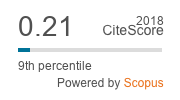Até quando preciso usar a imaginação?
Palabras clave:
Mundo imaginário, Resolução de problemas, Raciocínio silogísticoResumen
A apresentação de premissas em um contexto de brincadeira de faz-de-conta melhora o desempenho de crianças de quatro a seis anos na resolução de problemas silogísticos envolvendo fatos contrários à realidade (Dias e Harris, 1988a, b, c). Perguntou-se, então, em que idade crianças mais velhas dispensariam o uso do "mundo imaginário" como uma ajuda para resolver este tipo de problema. Os resultados mostram que o desenvolvimento da habilidade para raciocinar com premissas que violam o conhecimento empírico, em uma primeira fase, dos cinco aos nove anos de idade, necessita de um contexto de faz-de-conta. Em uma segunda etapa, a partir dos 10 anos, as crianças parecem começar a raciocinar silogisticamente com premissas que anteriormente seriam rejeitadas como falsas ou estranhas, sem o suporte de um contexto fictício.
Descargas
Citas
Markman (Eds.), Cognitive development, Carmichael's manual of child
psychology, Vol. Ill, 4th Edition, New York: John Wiley & Sons.
Dias, M. G. B. B. (1987). Da lógica do adolescente à lógica do analfabeto: há
progresso? Arquivos Brasileiros de Psicologia, 39, 1, 29-40.
Dias, M. G. & Harris, P. L. (1988a). The effect of make-believe play on deductive
reasoning. Brítish Journalof Developmental Psychology, 6, 207-221.
Dias, M. G. & Harris, P. L. (1988b). Reality versus imagination: their effect on
deductive reasoning. Trabalho apresentado na Annual Conference 1988 of the
"Brítish Psychological Society - Developmental Psychology Section", País de
Gales.
Dias, M. G. & Harris, P. L (1988c). Realidade x fantasia: sua influência no raciocínio
dedutivo. Psicologia: Teoria e Pesquisa, 4, 1, 55-68.
Dias, M. G. B. B. & Harris, P. L. (1990). The, influence of the imagination on reasoning
by young children. Brítish Journal of Developmental Psychology, 8, 305-318.
Estes, D., Weliman, H. M. & Woolley, J.D. (no prelo). Children's understanding of
mental phenomena. Em H. Reese (Ed.), Advances in child development and
behavior. New York: Academic Press.
Feather, N. T. (1964). Acceptance and rejection of arguments in relation to attitude
strength, criticai ability and intolerance of inconsistency. Journal of Abnormaland
Social Psychology, 69, 127-36.
Garvey, C. (1977). Play. Cambridge, Mass: Harvard University Press.
Harris, P. L, Marriot, C, & Whittall, S. (1988). Monsíers, Ghosts and Witches: Testing
the limits of the fantasy-reality distinction in young children. Paper presented at
the European Conference of Development Psychology, Budapest, Hungary.
Hawkins, J., Pea, R.D., Glick, J., & Scribner, S. (1984). "Merds that laugh don't like
mushrooms": Evidence for deductive reasoning by preschoolers, Developmental
Psychology, 20, 4, 584-594.
Henle, M., & Michael, M. (1956). The influence of attitudes on syllogistic reasoning.
Journal of Social Psychology, 44, 115-127.
Jennings, R., & Walker, P. (1987). Conditional reasoning: factors which influence
children's understanding of "If... then" statements. Presented at the Biennial
Meeting of the Society for Research in Child Development, Baltimore, Maryland.
Kuhn, D. (1977). Conditional reasoning in chiidren. Developmental Psychology, 13,
342-353.
Leslie, A. M. (1988). The necessity of illusion: Perception and thought in ínfancy. Em L.
Weiskrantz (Ed.). Thought without language. Oxford: Oxford University Press.
Liu, G. L. (1985). Reasoning counter factually in Chinese: Are there any obstacles?
Cognition, 21, 239-270.
Piaget, J. (1962). Play, dreams, and imitation in childhood. New York: Norton.
Piper, D. (1985). Syllogistic reasoning in varied narrative context: Aspects of logical
and linguistic development. Journal of Psycholinguistic Research, 14, 1, 19-43.
Reilly, J. S. (1983). Acquiring conditionals: how language and cognition interact. Paper
presented at the Eighth Annual Boston University Conference on Language
Development.
Scribner, S. (1975). Recall of classic syllogisms: A cross-cultural investigation of
errors in logical problems. Em R. Falmagne (Ed.), Reasoning representation and
process in chiidren and adults. Hillsdale: Erlbaum.
Stockinger Forys, S. K., & McCune-Nicolich, L. (1984). Shared pretend:
Sociodramatic play at 3 years of age. Em I. Bretherton (Ed.), Symbolicplay: The
development of social understanding, Orlando, Fia: Academic Press.
Wilson, W. (1965). The effect of competition on the speed and accuracy of syllogistic
reasoning. Journal of Social Psychology, 65, 27-32.



